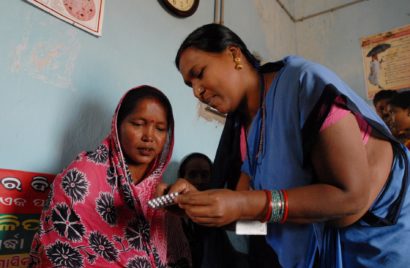 Gender
Gender
This report provides a rapid evidence summary of the impact of school closures on marginalised girls and presents strategies which involve elements of education technology to mitigate these negative impacts. In considering the broader evidence on what works in supporting marginalised girls’ education, this report focuses on those that could be facilitated, through use of… Read more
This was originally posted on DAI’s website. Nepal is in the midst of a demographic shift. Over the past three decades, its fertility rate has declined and population growth has stalled. The country has quickly moved from a high-mortality, high-fertility society to a low-mortality, low-fertility society. Although this shift is an encouraging indicator of development,… Read more
This blog originally appeared on the Open University website and is reposted with their permission Measures to control the current pandemic impact more heavily on everyone whose access to internet and digital technologies is limited. But in some countries, the impact can be particularly devastating, says Anna Colom. The COVID-19 pandemic has shed light on the inequalities in access to the… Read more
Over the last three decades, Nepal has experienced a demographic shift with declining total fertility rates, population growth, and improvements in life expectancy. Despite these positive shifts, the Nepalese people remain vulnerable to natural disasters, health problems, and economic shocks—45 percent of households in Nepal earn less than $2 a day. A robust social protection… Read more
This blog originally appeared on the Institute of Development Studies website, and was written by Stephen Thompson. In January 2020, a gender and disability workshop was held at IDS as part of the Inclusion Works and Disability Inclusive Development programmes. The aim was to strengthen the inclusion of gender mainstreaming within the disability programmes through raising awareness of gender… Read more
The UK’s Department for International Development (DFID) has contracted OPM to carry out a scoping study and literature review of gender-sensitive public works. This involves collecting good practices and examples from across the globe, as well as identifying potential areas for intervention (and piloting) in Mozambique. The terms of reference (TOR) for this study required… Read more
The UK’s Department for International Development (DFID) has contracted OPM to carry out a scoping study and literature review of gender-sensitive public works. This involves collecting good practices and examples from across the globe, as well as identifying potential areas for intervention (and piloting) in Mozambique. This report is a scoping study of the potential… Read more
The past decade has seen progress in advancing gender equality and women’s and girls’ empowerment through social protection. However, significant challenges persist. Coverage gaps for women of working age, and for children and adolescents, remain high. Addressing gender inequality is often seen as synonymous to targeting women as a vulnerable group, or in their role… Read more
This blog offers advice for practitioners wanting to apply gender transformative approaches to WASH programming. This blog was written by Elaine Mercer for the CLTS Knowledge Hub and originally appeared on their website. It has been partly adapted from the workshop ‘Gender Transformative WASH’ (April 2019) that the Institute of Development Studies (IDS) co-facilitated with Dr Sue… Read more
HEART partners hera‘s Alice Behrendt and Marieke Devillé, under supervision of Dia Timmermans, are currently working on a UNFPA funded systematic review investigating factors determining women’s ability to make their own decisions regarding sexual relations, contraceptive use and reproductive health care in lower and middle income settings. The team is working with the UNFPA human… Read more
Girls and women need effective, safe, and affordable menstrual products. Single-use products are regularly selected by agencies for resource-poor settings; the menstrual cup is a less known alternative. The authors reviewed international studies on menstrual cup leakage, acceptability, and safety and explored menstrual cup availability to inform programmes. The review indicates that menstrual cups are… Read more

 Gender
Gender











